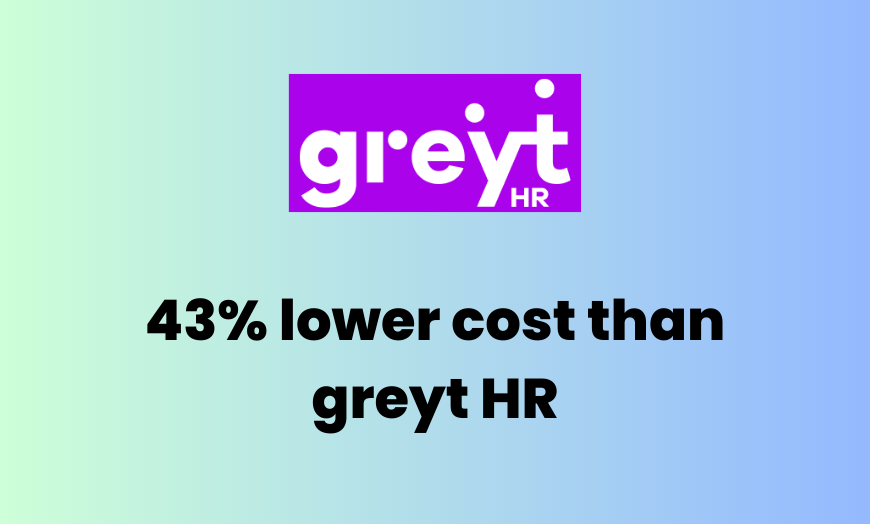5 Reasons why your company
should file tax returns on time?

Filing tax returns for business means reporting the income and expense to the Income Tax (IT) department, it also includes the assets and liabilities a company has. It’s clear that tax filing for companies can be more intricate than for individual tax returns, underscoring the importance of being extra vigilant and ensuring the timely submission of tax returns.
Different company structure
Various company formation structures, such as partnerships, proprietorships, limited liability partnerships, or private limited companies, entail specific tax liabilities. Therefore, it is crucial to carefully choose the type of company one intends to establish. Different company structures come with specific conditions that must be met, including mandatory accounting practices for businesses earning over Rs. 1,20,000 in income and with total sales or turnover exceeding Rs. 10,00,000. In certain instances, businesses are obliged to conduct tax audits within the specified filing deadlines.
Income tax rates vary depending on the business structure. For instance, partnership firms and LLPs are subject to a flat tax rate of 30 percent. If their income exceeds Rs. 1 crore, an additional 12 percent charge applies. Following the computation, there is an extra 3 percent levy for health and education cess. On the other hand, domestic companies must pay a 30 percent tax rate if their income surpasses Rs. 250 crores in the previous year. There is a surcharge applicable at 7 percent and 12 percent respectively for income between Rs 1 crore to 10 crore and greater than 10 crores.
The purpose of an income tax audit is to verify the authenticity and accuracy of the income, expenses, and deductions reported by the company. In accordance with the provisions of Section 44AB of the Income Tax Act, businesses are required to undergo an audit of their accounts.
Let’s explore various reasons to comprehend the importance of filing tax returns.
Get approved loan
Whether you run a small or large business, there may come a time when you require financial support for expansion, mergers and acquisitions, or research and development. Financial assistance becomes a necessity at some point. Applying for a business loan is often the most straightforward and expedient way to secure these funds. Additionally, if you intend to attract investors, they typically require recent tax filings as a sign of financial reliability. To obtain approval for a business loan, organizations must provide income tax returns from recent years along with income statements. Therefore, the importance of filing these returns cannot be overstated.


Avoid bad reputation
Failing to file taxes promptly or intentionally neglecting tax obligations can lead to penalties for the business. This, in turn, can harm the business’s reputation and result in paying more than the originally owed taxes. While some might believe they can avoid tax payments without consequences, it’s important to note that income is eventually traceable under the registered company’s PAN number.
Report losses
Some individuals might assume that because their company is currently operating at a loss, they can forgo filing tax returns. However, it’s important to remember the provision for carrying forward business losses to the following year. This provision allows businesses to report the loss under a special head, effectively reducing the income for the next year by the amount of the reported losses. This can be advantageous for the business as it results in a decrease in the reported income.


Have good due diligence
If your business necessitates interactions with government entities or securing contracts with government firms, it’s essential for your business to maintain a strong financial track record. Whether you seek investments or loans, the company must successfully pass due diligence assessments. To ensure any of the above you need to make sure your business file tax returns that are audited. In most government tenders they keep track of 5 years of past audited reports.
Claim special cases
Certain businesses are eligible for the presumptive taxation scheme, which can significantly reduce the tax burden for small enterprises. Under this scheme, small businesses with annual incomes of less than Rs 2 crores can benefit by paying taxes on only 8% of their earnings. Additionally, businesses that have not opted for the presumptive tax scheme can still claim depreciation on their assets, but their taxable income is calculated after accounting for all expenditures and depreciation. Therefore, timely filing of tax returns offers multiple advantages in terms of tax savings.

Conclusion
Filing taxes promptly offers numerous advantages. As a business owner, it provides you with insights into your business and enables more effective management of its growth. Furthermore, it enhances the confidence of customers and all stakeholders. Hence, it is imperative to ensure the timely submission of tax returns.
You don’t have to pay fortune for premium software.



FAQ's
Filing on time is more than just following a legal rule — it protects your company from penalties, preserves the right to carry forward losses, helps maintain investor confidence, and ensures faster refunds. Timely filing also reduces the risk of facing scrutiny or notices from the Income Tax Department.
Late Filing Fee: A mandatory fee of ₹10,000 is imposed.
Interest on Unpaid Tax: A 1% monthly interest is charged on the outstanding amount.
Loss of Benefits: The company cannot carry forward most business losses to future years.
Increased Scrutiny: Higher risk of audit and penalties from tax authorities.
Reputational Damage: Negative impact on creditworthiness and financial standing.
As a business owner, timely tax filing is crucial for securing loans or funding. It provides lenders with a verified, credible record of your company's financial health and a clear history of responsible financial management. This third-party validation of your revenue and profitability builds trust and a strong credit score, which are essential for assessing your creditworthiness. By filing on time, you avoid penalties and legal issues that would otherwise signal financial instability, making your business a more attractive and reliable candidate for a loan or investment.
Keeping financial and employee data updated year-round is key. This includes payroll records TDS Calculations, GST filings and investment proofs. Instead of scrambling in the last week before the deadline, maintain an organized process using digital tools that centralize all compliance - related documents.
Kredily's HRMS automates payroll processing, calculates TDS accurately generates statutory reports, and stores employee investment proofs digitally. This means finance teams get ready-to-use error free reports for filing. By reducing manual work and last-time follow-ups, Kredily helps ensure deadlines are met without stress.
Yes, even if a company has paid all its taxes, penalties still apply for a late filing. The Income Tax Act of India has separate provisions for the payment of tax and the timely submission of the tax return. The late filing fee under Section 234F is a mandatory penalty for the act of missing the filing deadline, and it is levied regardless of whether the tax liability has been cleared. While paying the taxes on time prevents the 1% monthly interest penalty under Section 234A, the company will still face the late filing fee of up to ₹10,000 for the delayed submission of the return itself, along with the other negative consequences such as the inability to carry forward certain losses.
Due dates for company ITRs are based on whether the company is subject to a tax audit. For the Assessment Year 2025-26, the due date for most companies is October 31, 2025, while companies with international or specified domestic transactions requiring a transfer pricing report have a due date of November 30, 2025.
To confirm due dates each year, always refer to the official Income Tax e-Filing portal or press releases from the Central Board of Direct Taxes (CBDT), as these dates are subject to change and may be extended.
Failing to complete e-verification for your company's filed ITR makes the return invalid.
Invalid Return: The unverified ITR is not considered filed, and the company is treated as a non-filer.
Late Filing Penalties: The company will face a late filing fee of up to ₹10,000, along with other penalties for not filing.
Loss of Benefits: The company loses the ability to carry forward certain business losses to future years.
No Refund Processing: Any tax refund due to the company will not be processed.
Increased Scrutiny: Non-compliance can lead to increased scrutiny and potential legal action from the tax authorities.
The process to correct a mistake in a filed ITR is to file a revised return. Here are the key points to remember:
Time Limit: The deadline for filing a revised return is December 31 of the relevant assessment year or before the completion of the assessment, whichever is earlier. For the FY 2024-25 (AY 2025-26), the deadline is December 31, 2025.
Process: The process for filing a revised return is similar to filing the original one, but you must select the option to file a "Revised Return under Section 139(5)." You will need to provide the acknowledgement number and the filing date of your original return.
Replacement: When a revised return is filed, it completely replaces the original return. The revised version is then considered the final, valid return for the company.
No Penalty: The Income Tax Department does not charge any additional penalty for filing a revised return to correct genuine mistakes.
Rectification vs. Revision: It's important to distinguish between a "revised return" and a "rectification request." You file a revised return to correct a mistake that affects your income or tax liability. A rectification request is typically used to correct a minor clerical or arithmetical error that has been pointed out by the tax department in its processing intimation.
To ensure smooth and timely tax filing, a company should maintain comprehensive records throughout the year. Key documents to keep include:
Financial Records: Up-to-date Balance Sheets, Profit & Loss Statements, bank statements, and all sales/purchase invoices.
Tax Documents: TDS certificates (Form 16A), GST returns, and regular downloads of Form 26AS and the Annual Information Statement (AIS) to verify all tax-related transactions.
Other Records: Proof of business expenses, fixed asset records, loan agreements, and employee payroll details.
Maintaining these records helps ensure accuracy, facilitates the audit process, and is essential for claiming all eligible deductions.
No, a small business generally cannot skip filing a tax return, even if it made no profit.
Mandatory Filing: All companies and LLPs are legally required to file an ITR every year, regardless of income or profit.
Loss Carry-Forward: Filing even with a loss is crucial to carry forward that loss to future years, which can be used to offset future profits and reduce tax liability.
Avoid Penalties: Not filing can lead to penalties, increased scrutiny, and a lower credit score for the business.
Loan and Funding Requirements: Banks and financial institutions require filed ITRs to assess a business's financial health, making them essential for securing loans or funding.
Missing the ITR deadline does not directly impact GST compliance in terms of penalties, as they are governed by separate tax laws. However, it can have significant indirect consequences. The Income Tax Department and GST authorities now cross-reference data, so a company's financial information, including its declared turnover in its ITR, must reconcile with its GST returns. A missed ITR deadline signals a lack of proper financial discipline, which can lead to increased scrutiny and potential audits from both tax departments. This non-compliance can also negatively affect a company's overall reputation and creditworthiness, making it more difficult to secure loans or conduct business smoothly.
Yes. Kredily's HRMS can generate payroll summaries, TDS deduction statements form 16, and expense reports instantly. These reports are not only useful for ITR filing but also for statutory audits, GST reconciliation, and internal financial reviews. This helps finance teams maintain one accurate source of truth for all compliance needs.
Yes, you can make changes to your company's ITR even after filing it early.
Revised Return: The Income Tax Act allows you to file a revised return under Section 139(5) to correct any errors or omissions.
Deadline: You can file the revised return up to December 31, 2025, or before the assessment is completed, whichever is earlier.
No Penalty: There is no penalty for filing a revised return to correct genuine mistakes.
Replaces Original: The revised return completely replaces the original one, and the tax department considers it the final, valid submission.
To ensure your company never misses the ITR deadline, you should implement a proactive system combining planning, technology, and professional help.
Establish a Financial Calendar: Set internal deadlines for data collection and schedule meetings with your tax professional well in advance of the official due date to prevent last-minute rushes.
Use Automation: Centralize your financial records using accounting software (e.g., Tally, QuickBooks) and cloud storage to ensure data is always up-to-date and easily accessible.
Hire a Tax Professional: Engage a Chartered Accountant (CA) to manage your tax compliance. They will stay current on due dates and handle all filings on your behalf, providing peace of mind and ensuring accuracy.